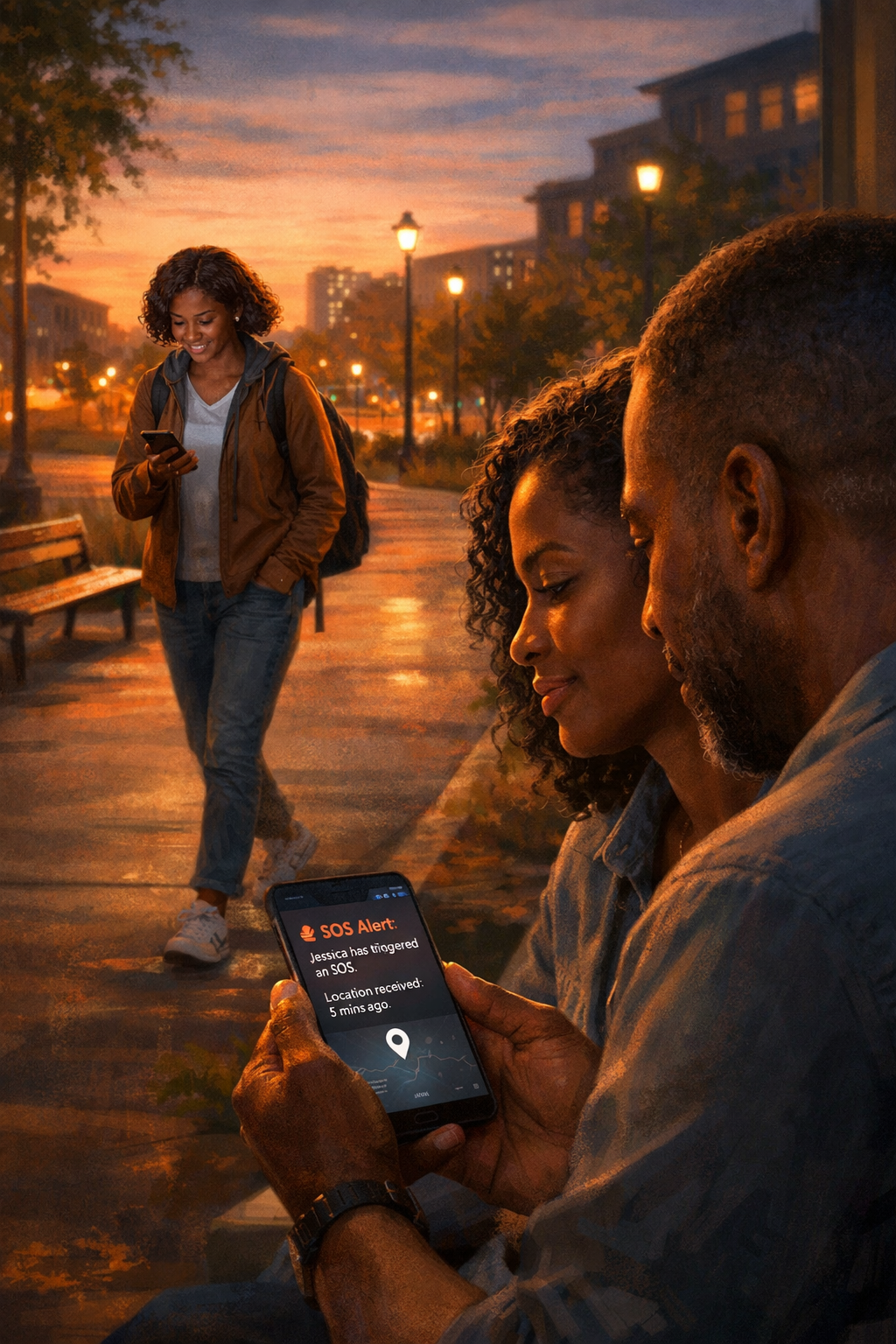Imagine trying to send an SOS alert during an emergency, only to realize your phone has no data. That moment of delay could cost more than just time.
A personal safety app works just like WhatsApp or Google Maps—it needs the internet to function. Without a reliable connection, your location sharing, SOS alerts, and real-time updates won’t reach the people who need them most. In this blog, you’ll learn why internet access isn’t just optional, but essential for using a personal safety app effectively.
Why Internet Connection is Non-Negotiable
Every app you use daily—whether it’s chatting on WhatsApp, streaming YouTube, or navigating with Google Maps depends on internet access. A personal safety app is no different. In fact, it’s more critical because it involves your security.
Without internet, your phone can’t:
- Share your live location with trusted contacts
- Send out SOS alerts instantly
- Keep your app synced in real time
That’s why skipping data for your safety app while spending hours online on social media is a risky trade-off.
How Location Sharing Relies on Data
Location tracking isn’t magic—it relies on GPS combined with mobile data. When your phone has no internet connection, it struggles to update your movement in real time. This creates a dangerous gap where loved ones may assume you’re safe while the app shows your last outdated location.
Think of it this way: if WhatsApp stops updating messages without internet, your safety app also stops updating your whereabouts.
Looking for a reliable personal safety app? Download NauNauSOS today
Internet and SOS Alerts: Timing is Everything
In emergencies, timing is critical. SOS alerts must reach your trusted network immediately. If your phone is offline, the alert won’t go out until you reconnect. This could delay help when every second matters.
A personal safety app is designed to notify family or friends instantly. But that instant response only happens if you have mobile data running in the background.
Why Social Media Location Sharing Isn’t Safe Enough
Some people assume sharing their location on WhatsApp or Facebook is enough. The truth is, these platforms aren’t built for emergencies. They don’t prioritize SOS alerts, don’t track continuously in a secure way, and don’t provide a structured safety response.
That’s why using a dedicated personal safety app is a smarter choice. It’s built with safety in mind, not social interaction. And just like you never think twice about keeping data for social apps, you should treat your safety app the same way—or even more importantly.
Making Safety a Priority
Data bundles are often seen as entertainment expenses used for scrolling TikTok, Instagram, or Netflix. But your internet connection is also a lifeline. Allocating just a small part of your data plan to keep your safety app active can make the difference in an emergency.
When I traveled to a new city for my National Youth Service (NYSC), I relied heavily on location apps to understand the area. Without internet, I would have been completely lost. The same principle applies to safety apps—you can’t afford to be disconnected when it matters most.
Conclusion
A personal safety app without internet is like a car without fuel. You can install it, but it won’t take you anywhere unless it’s connected. If you already prioritize internet for social media, it’s time to prioritize it for something far more important—your safety.
So, before you step out, make sure your personal safety app is active and your internet connection is on. Your security depends on it.
Looking for a reliable personal safety app? Download NauNauSOS today

